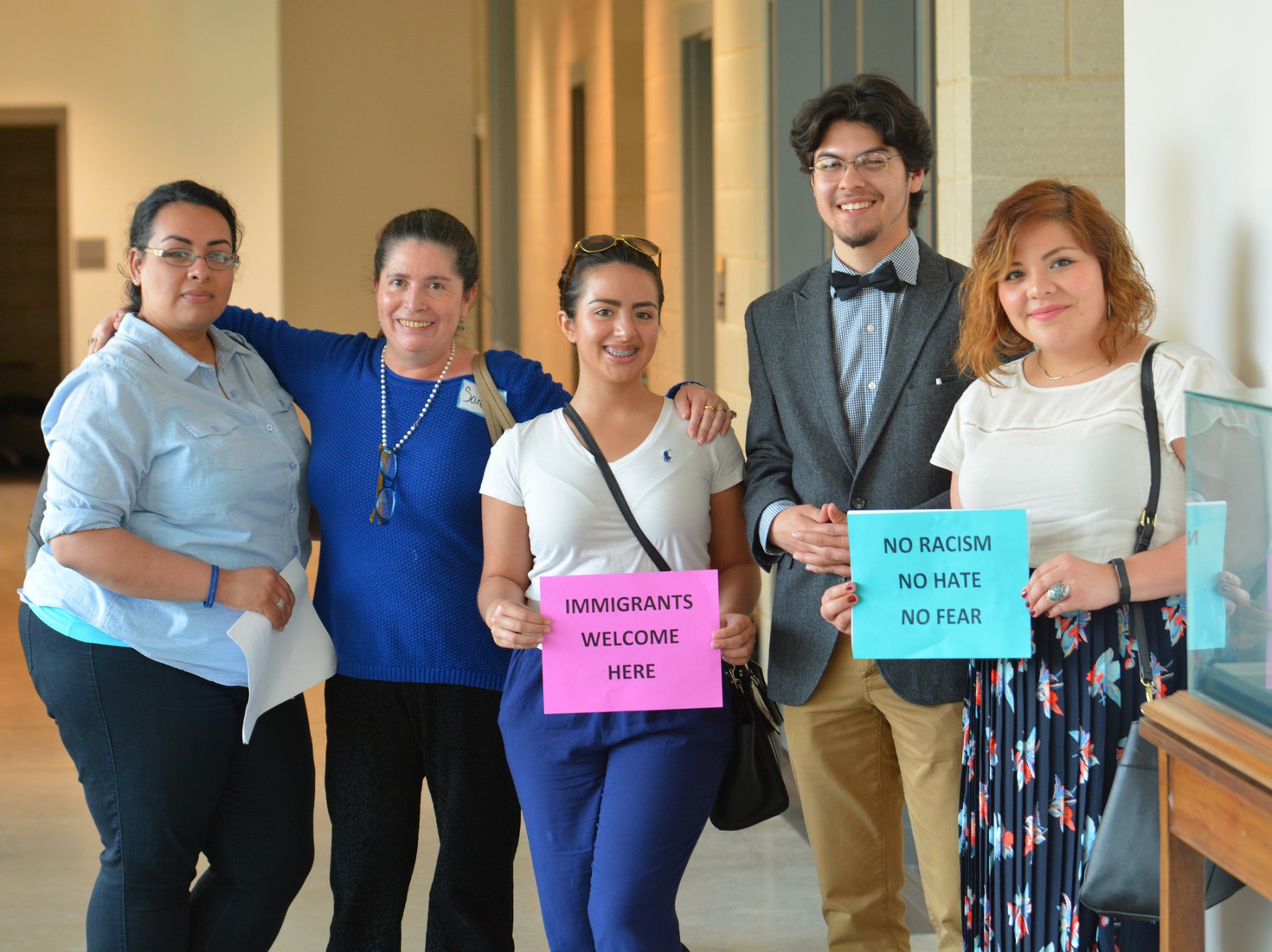
AFSC Iowa staff and volunteers join with partners to rally outside the Des Moines City Council chambers in support of a Welcoming City resolution. Jon Krieg / AFSC
A recent Harvard study of online media and social media coverage of the 2016 election contains some alarming insights for those of us working for immigrant rights and to build more inclusive communities: Negative coverage of immigration and Muslims dominated.
Working with a large open data set, researchers found that during the 2016 election, Donald Trump’s campaign succeeded in shaping media and social media coverage of his core issues on his terms, linking immigrants and Muslims to crime and fear. On social media, people overwhelmingly shared negative, anti-immigration stories: About 66 percent of tweets that shared stories about immigration were anti-immigrant.
Substantive coverage of other policy proposals that prioritized keeping families together, embracing diversity, and creating an immigration process that would create a roadmap to citizenship received much less coverage. When the public considered these issues, as a result, they were more likely to think about a wall, a ban, and a registry than about the humane treatment of all people.
Instead of accepting the negative terms of these frames, it is important for advocates, journalists, and all of us to use positive framing when we talk about immigration on social media and in real life. Here are some tips to keep in mind:
1. Don’t repeat or repost negative stories even to refute them.
By repeating negative stories, we can accidentally amplify them and put them in front of more eyeballs. Most people read just headlines or skim, so even if you post something that is false or misleading in order to correct the record, people will tend to remember the negative. If you want to correct a myth, state the truth instead of repeating the part that is false.
2. Language matters. Set your own terms.
The words and labels we use matter, and they can convey whole worldviews. When someone refers to an “illegal immigrant” or “illegal alien,” they dehumanize people and it can make people think subconsciously about crime and rule-breaking. If you are having a debate with someone who uses a term like this, don’t repeat it. Instead, talk about people, members of our communities, or even “new Americans” or “aspiring citizens” depending on the context. That is who we are talking about when we discuss humane immigration policies: people who are part of us.
3. Tell and share stories that focus on people’s humanity.
No matter where we are from, or how we pray, we all belong here. Recognizing everybody’s humanity and embracing diversity in our communities is essential. Extreme anti-immigrant and Islamophobic views dominated media and social media coverage of the 2016 election. It’s time for all of us to change that conversation.